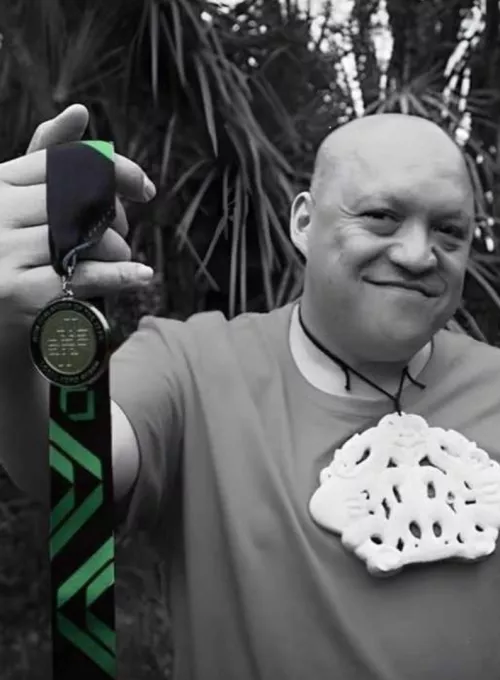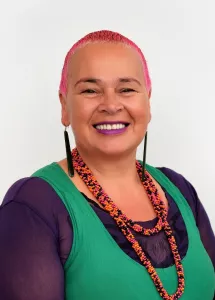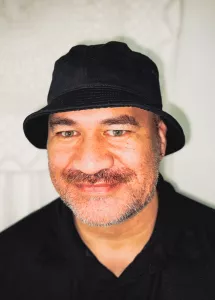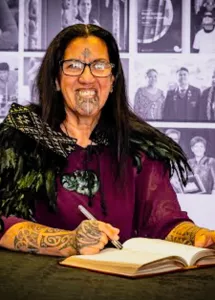
Dr. Alexander Stevens II (MInds, MHlthPrac PhD) heard his first sexual abuse disclosure from a friend when he was sixteen. At eighteen, he advocated for Māori and Pacific people in the LGBT+ Rainbow/Disability communities and, five years later, met a friend living with schizophrenia and addictions, which influenced his decision to have a career in health and wellness.
Almost twenty years later, Alexander has used his passion and knowledge of addressing historical sexual violence trauma, mental illness, addictions, and well-being to support Māori and Pacific men and their communities across Aotearoa, where he has worked with over 4,500 men with childhood experiences of sexual violence.
Health and wealth go hand in hand, and the Māori community asked Alexander to work in financial capability, including supporting Māori communities heading towards retirement. While providing a free therapy service in the community, he also worked at the Retirement Commission, Good Shepherd (microfinance), and, more recently, the Reserve Bank of New Zealand as a Senior Advisor, contributing to the diversity, equity, inclusion, and Te Ao Māori Team. He is now a Senior Māori Lecturer in Clinical Sciences at Auckland University of Technology.
When he is not working in Academia, or with Government organisations, Alexander provides regional clinical supervision, research, social service programs, project management in financial capability, and health services. In 2019, he founded StandingTallNZ.org, a free service that supports Māori and Pacific men and communities affected by sexual violence.
The idea for StandingTallNZ.org emerged during his PhD studies (2017 – 2022) in Māori and Pacific Health. StandingTallNZ.org also provides training and workshops for health and social professionals to learn how to assist in sexual abuse recovery, work with disclosures, and support Māori/Pacific men using indigenous approaches to wellness and empowerment. When he is not working in health, he mentors Māori/Pacific tane interested in working in the social and health sectors.
In November, Dr Alexander was awarded a Kiwi Bank Local Hero Medal and nominated as a semi-finalist for the Kiwi Bank 2025 New Zealander of the Year.
His daily motto is: "Ma te kotahitanga e whai kaha ai tātau”, (In Unity we find Strength).
Links:
- Standing Tall NZ
- Alexander Stevens II - How a young Māori boy from Ōtara became a highly-qualified Counsellor specialising in Male Sexual Abuse
- Power of my Māori name: Stories of indigenous struggles in white New Zealand
- AUT Bio
Masters in Indigenous Studies
Power of my Maori name: Stories of indigenous struggles in white New Zealand https://ourarchive.otago.ac.nz/handle/10523/7532
Masters in Health Practice: Māori Health
Moving from Te Po (Night) and into Te Ao (Light): an Indigenous Framework to Support Māori Males Who Have Been Sexually Abused in New Zealand https://openrepository.aut.ac.nz/items/f742c579-f8e1-4eb8-96a5-4315a2cc7eb4
Doctorate in Philosophy
StandingTallNZ: An Indigenous Psychology Approach to Developing an E-health Website to Support Māori & Pacific Men, Their Support People and Community Groups Affected by Male Childhood Sexual Violence https://openrepository.aut.ac.nz/items/403e6034-1084-4f1d-984f-bbcb63c4feec
Updated 20 November 2024



